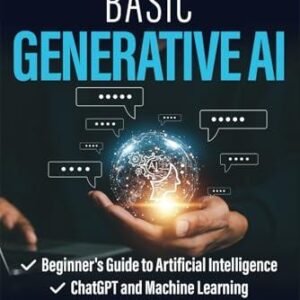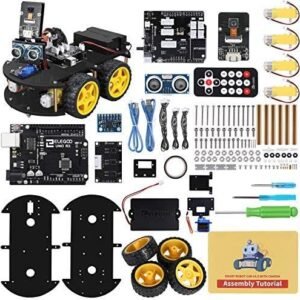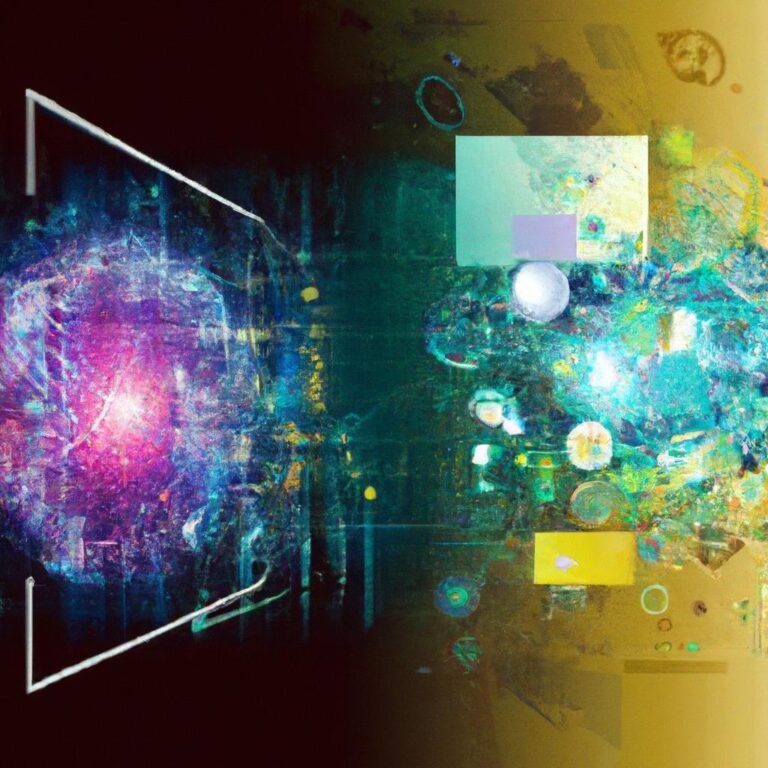In an era where technology is reshaping the very fabric of our daily lives, artificial intelligence (AI) stands at the forefront of this transformative wave. From revolutionizing industries to redefining the way we interact with the world, AI is not just an emerging trend but a fundamental shift that promises to influence generations to come. However, the true potential of AI can only be unlocked through education and understanding. In this essential guide, we delve into the importance of AI education, exploring the opportunities it presents and the necessary skills for thriving in a future increasingly driven by intelligent technology. Whether you are an educator, a parent, or a lifelong learner, our comprehensive roadmap will empower you to navigate the complexities of AI and help you unlock the potential for success in tomorrow’s digital landscape. Join us as we embark on a journey to demystify AI education and equip ourselves with the knowledge to shape a brighter future.
Table of Contents
- Understanding the Impact of AI on Modern Education
- Key Skills and Concepts in AI Literacy
- Integrating AI into Curriculum: Best Practices for Educators
- Future-Proofing Careers: Encouraging Lifelong Learning in AI Technologies
- To Wrap It Up
Understanding the Impact of AI on Modern Education
Artificial Intelligence is reshaping the educational landscape by offering innovative tools that cater to diverse learning needs. Personalized learning experiences have become a reality, enabling students to engage with material at their own pace and depth. This adaptability comes through various AI-powered platforms that analyse student performance and learning behaviors, providing tailored resources that aid comprehension and retention. Moreover, educators are leveraging AI to streamline administrative tasks, allowing them to devote more time to direct instruction and student interaction.
The impact of AI extends beyond individual learning. Schools and institutions are benefiting from enhanced data analytics, which enable them to make informed decisions regarding curriculum development and resource allocation. This data-driven approach helps identify gaps in learning and suggests interventions, ensuring that all students have the opportunity to succeed. The following table summarizes some key AI tools and their applications in education:
| AI Tool | Application |
|---|---|
| Adaptive Learning Platforms | Customize learning paths based on individual progress. |
| Virtual Tutors | Provide 24/7 support and tutoring on various subjects. |
| Assessment Analytics | Analyze student performance to refine curricula. |
Key Skills and Concepts in AI Literacy
Understanding artificial intelligence (AI) requires a grasp of several key skills and concepts that empower individuals to navigate and leverage this transformative technology. At its core, AI literacy involves a fundamental comprehension of how AI systems work, including concepts such as machine learning, natural language processing, and neural networks. Additionally, familiarity with data ethics and algorithmic bias plays a crucial role, ensuring that users can critically assess the implications of AI technologies in society. Cultivating skills in data analysis, programming languages like Python, and basic statistics is equally important, as these foundations allow individuals to understand the mechanics behind AI applications.
Moreover, an expansive view of AI literacy also encompasses social and emotional intelligence, enabling individuals to communicate effectively about AI’s role in various sectors. The collaborative nature of AI implementation necessitates strong problem-solving and creativity skills as teams work together to design, implement, and refine AI solutions. Here’s a concise overview of the essential skills and concepts:
| Skill/Concept | Description |
|---|---|
| Machine Learning | Algorithms that allow systems to learn from data. |
| Natural Language Processing | Interpreting and generating human language. |
| Data Ethics | Understanding moral issues surrounding data use. |
| Creative Problem-Solving | Innovatively addressing challenges within AI projects. |
Integrating AI into Curriculum: Best Practices for Educators
Integrating AI into the curriculum offers a unique opportunity to enhance learning experiences and prepare students for a rapidly evolving job market. To effectively incorporate AI, educators should focus on creating an interdisciplinary approach that combines technology with core subjects. This can be achieved through methods such as:
- Collaboration with Tech Experts: Partnering with AI professionals to host workshops can bridge the knowledge gap and provide real-world insights to students.
- Hands-On Projects: Encourage students to engage in projects that require the application of AI tools, enabling them to think creatively and critically.
- Ethical Discussions: Incorporate conversations around the ethical implications of AI, fostering a sense of responsibility and awareness in future leaders.
Moreover, ongoing assessment and feedback are crucial in this integration process. Educators should implement regular evaluations to measure the effectiveness of AI tools in achieving learning outcomes. Consider utilizing a reflection table to track progress and facilitate constructive discussions in class:
| Aspect | Evaluation Method | Feedback Frequency |
|---|---|---|
| Project Engagement | Student Presentations | Weekly |
| Understanding of AI Concepts | Quizzes | Bi-weekly |
| Ethical Perspectives | Group Discussions | Monthly |
Future-Proofing Careers: Encouraging Lifelong Learning in AI Technologies
In an era where rapid technological advancements leave many scrambling to keep up, the importance of continuous education, especially in AI technologies, cannot be overstated. Embracing a mindset of lifelong learning empowers individuals to adapt and thrive in an ever-changing job market. By actively seeking out opportunities to expand their knowledge and skills, professionals can ensure relevance amidst evolving industry demands. Here are some effective strategies for fostering a commitment to learning:
- Online Courses: Enroll in platforms like Coursera, Udacity, or edX, which offer targeted AI programs designed for various expertise levels.
- Networking Events: Attend workshops and seminars that focus on AI developments to connect with experts and like-minded peers.
- Mentorship: Seek guidance from experienced professionals who can share insights and industry trends.
- Certification Programs: Obtain recognized certificates to enhance credibility and validate skills in AI technologies.
To facilitate the journey of lifelong learning, organizations can play a pivotal role by investing in training programs and creating a culture that values growth. Implementing internal workshops or providing access to external training resources can significantly uplift employee engagement and retention. Furthermore, fostering collaboration within teams allows for knowledge sharing, encouraging a culture of curiosity and exploration. Below is a simple overview of how organizations can enhance these learning opportunities:
| Strategy | Description |
|---|---|
| Internal Training | Host regular sessions to cover the latest AI trends and technologies. |
| Peer Learning | Create study groups or project teams focused on AI initiatives. |
| Resource Sharing | Provide access to books, articles, and online resources relevant to AI. |
| Feedback Loops | Encourage constructive feedback to promote skill enhancement. |
To Wrap It Up
As we stand on the brink of an unprecedented technological revolution, the importance of AI education has never been clearer. ”” encapsulates the need for a well-rounded, accessible, and comprehensive approach to learning about artificial intelligence. By investing in AI education, we are not only equipping ourselves with skills for the future, but also fostering a deeper understanding of the ethical, social, and economic implications of this powerful technology.
In closing, whether you’re an educator, a student, or a lifelong learner, embracing AI education is a crucial step towards not only personal growth but also contributing to a more knowledgeable and informed society. The path ahead may seem daunting, but with the right resources and strategies, anyone can become a proficient steward of AI.
Let’s take the initiative to build a future where AI knowledge is widespread, enabling innovation and creativity that benefits all. For those eager to dive deeper into the world of AI, remember that learning is a journey, and every step forward is a step towards empowering both yourself and those around you. Together, let’s shape a future driven by informed decision-making and ethical considerations, ensuring that AI serves as a tool for good in our world. Thank you for joining us in this exploration of AI education—let’s keep the conversation going!





